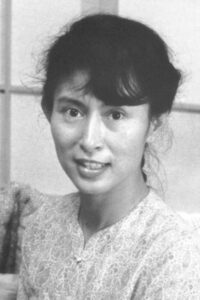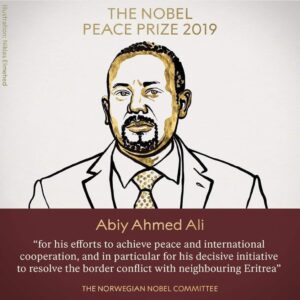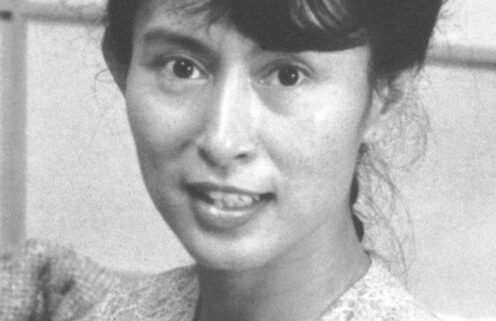WAR CRIMES IN THE OGADEN MIGHT JINX THE 2019 NOBEL PEACE PRIZE*
 |
| 1991 Nobel Peace Laureate |
By Hassan Keynan
In fact, Myanmar’s leader is at this very moment at the UN International Court of Justice (ICJ). She is expected to address the Court tomorrow to defend her country against accusations of genocide.
 |
| 2019 Nobel Peace Laureate |
Fast forward to 2019. In October, members of the Norwegian Nobel Committee gathered in their iconic and hermetically sealed enclave not far from the North Pole and awarded the Nobel Peace Prize 2019 to Abiy Ahmed Ali “for his efforts to achieve peace and international cooperation, and in particular for his decisive initiative to resolve the border conflict with neighbouring Eritrea.” In
Abiy Ahmed’s assumption of power has lit a glimmer of hope in a country steeped in tyranny and misery. A key element in PM Abiy’s reform package was his decision to end the border conflict and seemingly endless state of war with Eritrea. There were sufficient grounds to assume that the new, young and relatively inexperienced Prime Minister has displayed some of the basic attributes of an inspirational, even transformational, leader in the making. Many influential global actors, among them the Norwegian Nobel Committee, therefore, quickly jumped on the magical Abiy wagon, and showered him with accolades to reward him for his courageous initiatives, and more importantly, to encourage the young leader to stay on course.
However, the true measure of a genuine national leader cannot be taken solely on the basis of personal qualities and achievements. A great deal of his/her fate is inextricably linked with that of the nation he/she leads. Here in lies the accursed corner that brings the 1991 and 2019 Nobel Peace Laureates together. The plight of the Rohingya ultimately revealed who the 1991 Nobel Peace Laureate truly was, and probably sealed her fate and legacy. For Abiy Ahmed the War Crimes and mass graves in the Ogaden region might catapult him into an ugly limelight as an eternal companion of the most notorious and arguably most evil Nobel Peace Laureate in recent times.
The Ethiopian State under the leadership of its ruling party EPRDF had perpetrated a savage campaign of collective punishment and mass murder in the Ogaden region for 23 years, especially between 2007 and 2017. The notorious jail Ogaden served as the central specialized torture and terror clinic for refining and perfecting new techniques tailor-made for the innovation in genocide pioneered by the EPRDF-led Ethiopian Government. The current Prime Minister was a senior intelligent officer in the Ethiopian National Defense Forces (ENDF) at that time.
The plight of the victims of the two-decade long state-sponsored terror in the Ogaden region probably never featured in the minds and majestic contemplations of the lords of global peace. However, the Ogaden debacle might transform the 2019 Nobel Peace Prize into a jinxed affair for both the recipient and giver, presenting a haunting sense of déjà vu all over again.
There is credible evidence that war crimes and crimes against humanity had been committed in the Ogaden region as documented by reputed human rights organizations like Human Rights Watch. Some organizations even went as far as accusing the Ethiopian Government of “genocide” in the Ogaden. Most importantly, an international case against the Government of Ethiopia’s gross and egregious violations in the Ogaden is currently under consideration in the African Commission on Human and Peoples’ Rights based in Banjul, Gambia.
However, PM Ahmed’s fate and legacy need not be exactly the same as those of the 1991 Nobel Laureate. He can avoid that terrible eventuality by coming clean as to what happened in the Ogaden region between 1994 and 2017. When he came to power, PM Ahmed told members of the Parliament that the Ethiopian state terrorized its own people. This was the first time ever that an Ethiopian leader had taken such a courageous stance on the side of truth and justice. He therefore has what it takes to reveal to his own people and the world what he knows about the war crimes in the Ogaden region and take all the necessary measures to address it.
In this connection, PM Ahmed may consider the following steps:
- Set up an independent international panel of experts to establish the facts about what transpired in the Ogaden region. The independent international fact-finding mission on Myanmar might provide some tips.
- Act upon the verdicts and recommendations of panel of experts.
- Make sure that the victims get justice.
I wish PM Ahmed well.
Keynanhassan@yahoo.com is a retired former senior UN Official who worked in Africa, Asia and Europe
*This article was originally published on Wardheernews on 10 December 2019, the day Abiy received the Prize in Oslo.



